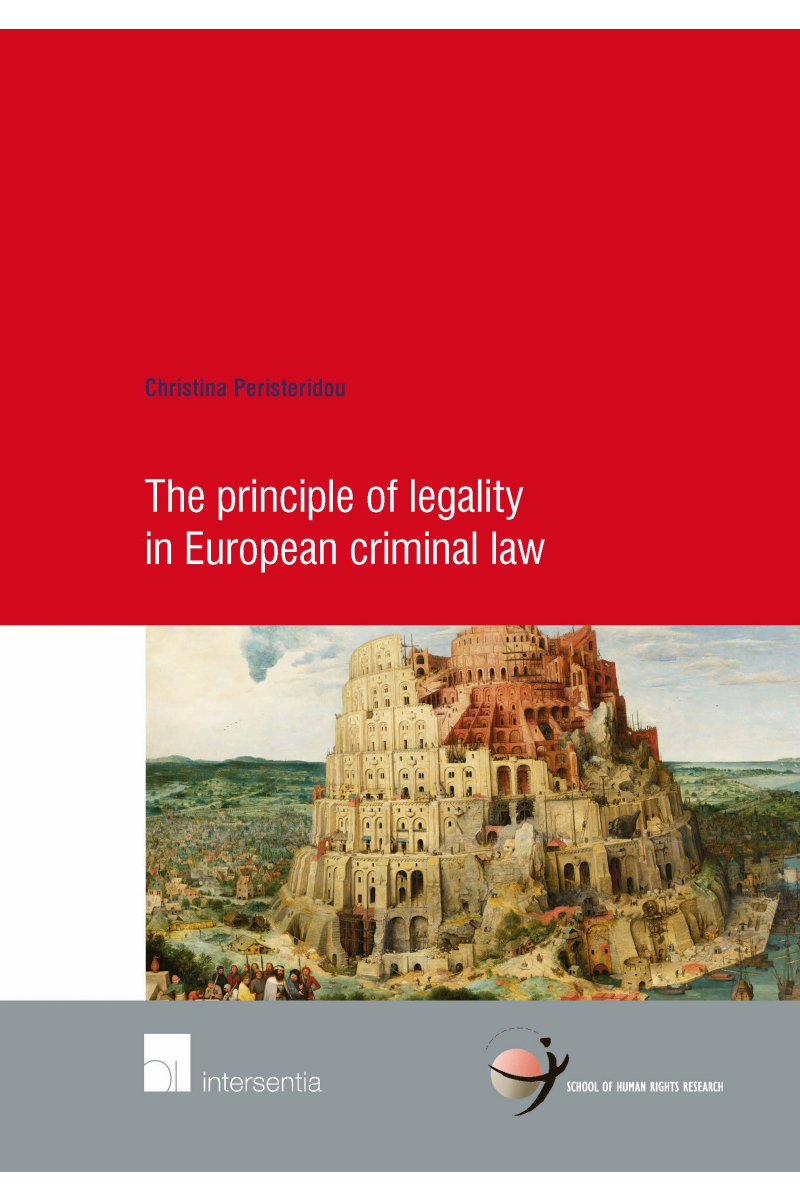 maestro
mastercard
visa
maestro
mastercard
visa

The principle of legality in European criminal law

Acquiring competences for the creation of criminal offences begs the question of legitimacy. The European criminal justice system already has such competences and many instruments define criminal offences. The legality principle is a cornerstone doctrine for legitimising criminal norms in Western legal systems. Despite already being part of the European legal order, this principle lacks a coherent theoretical and normative blueprint that shows how it should be conceived in European criminal law.
This book develops such a theory for the principle of legality in European criminal law. The focus is on the legitimising and normative functions of this principle. The reader shall find a proposal for a theoretical framework that legitimises European criminal law and the accompanying normative requirements of criminal liability. Questions such as the precision of European and national implementing norms, the position of case law as a source of law and the scope of interpretative powers of European and national courts are addressed. The book uses comparative research into national systems and modern theories of criminal law to build a framework for the principle of legality. This is then instilled with special characteristics of the European legal order, such as the multi-level system of authorities and sources, pluralism and freedom of movement.
‘[a] welcome addition to the rising literature in EU criminal law. […] The qualities of this book are manifold. Firstly, the choice of subject matter is original and ambitious. To this one should add that the comparison of in particular English, German, and Dutch legal orders on the principle of legality is unprecedented. Secondly, the book should be praised for the range of different disciplines Peristeridou resorts to in answering her question. The author masters with the same proficiency broad criminal theory and political theory questions on the rationales of legality, positive criminal law norms and principles of three legal orders as well as the comparative method, and EU law constitutional principles and doctrines. […] Thirdly, Peristeridou’s analysis is valuable in that it moves very well from theoretical discussions on rationales and general principles to concrete policy recommendations. In doing so she speaks to two audiences. Her discussion of key theoretical questions – such as: what should the function of legality be within the EU legal order? – would satisfy legal theorists looking for sophisticated, and thus convincing, enquiries in EU criminal law. Her very concrete suggestions of, for instance, establishing a precedent system for the ECJ, and on legislating on conflicts of jurisdiction, provide substantial food for thought to policy makers and EU criminal justice actors. Fourthly, the structure and the prose are extremely fluent, and the author often provides short summaries of what has been previously argued. This makes a very complex discussion easy to digest, and the book a real pleasure to read.’ – Irene Wieczorek in Common Market law Review (2018) 698
| Producttype | book |
|---|---|
| Formaat | Paperback |
| EAN / ISSN | 9781780683577 / 9781780685625 |
| Reeksnaam | Human Rights Research Series |
| Gewicht | 630 g |
| Beschikbaarheid | In voorraad |
| Aantal pagina's | xiv + 360 blz. |
| Toegang tot oefeningen | Nee |
| Uitgever | Intersentia |
| Taal | Engels |
| Publicatiedatum | 11 dec. 2015 |
| Beschikbaar op Strada Belgique | Nee |
| Beschikbaar op Strada Europe | Nee |
| Beschikbaar op Strada Luxembourg | Nee |
Uittreksels
- Table of Contents
- PART 1. SETTING THE SCENE
- Chapter I. Introduction
- Chapter II. Methodology
- PART 2. THE LEGALITY PRINCIPLE IN NATIONAL CRIMINAL LAW
- Chapter III. Theoretical Rationales of the Legality Principle
- Chapter IV. The Application of the Principle in three National Systems
- Chapter V. Three Models of Criminal Justice
- PART 3. THE PRINCIPLE OF LEGALITY IN EUROPEAN CRIMINAL LAW
- Chapter VI. Fragments of the Legality Principle in European Criminal Law
- Chapter VII. The Legitimacy of European Criminal Justice
- Chapter VIII. The Principle of Legality in European Criminal Law
- Selected Bibliography
- Summary